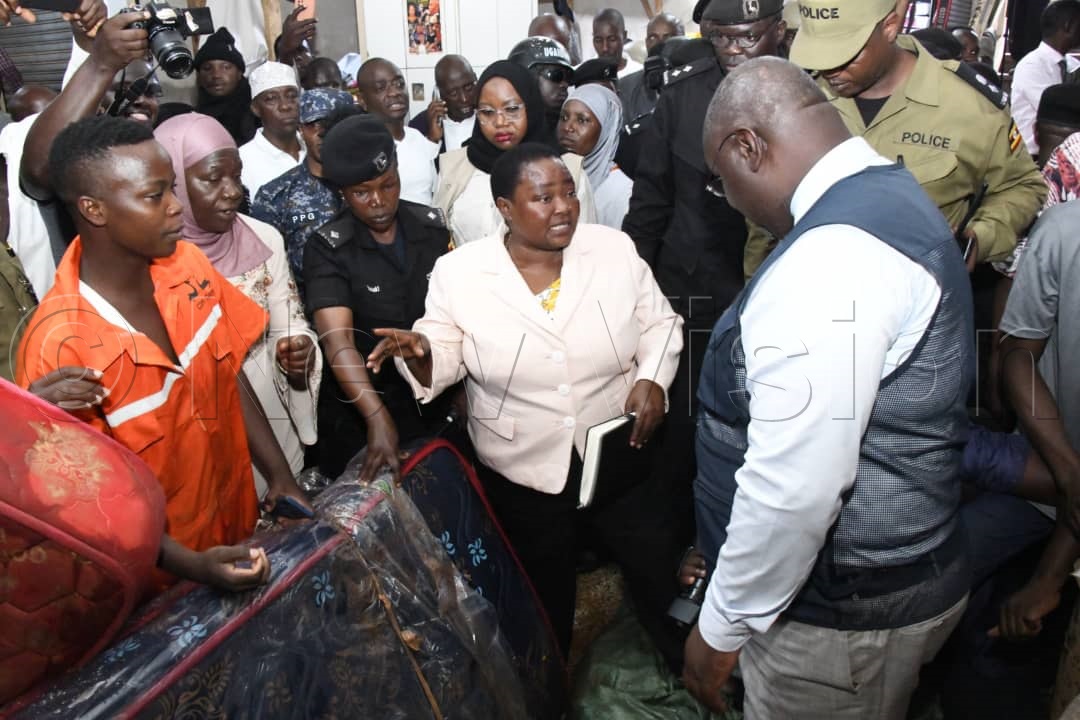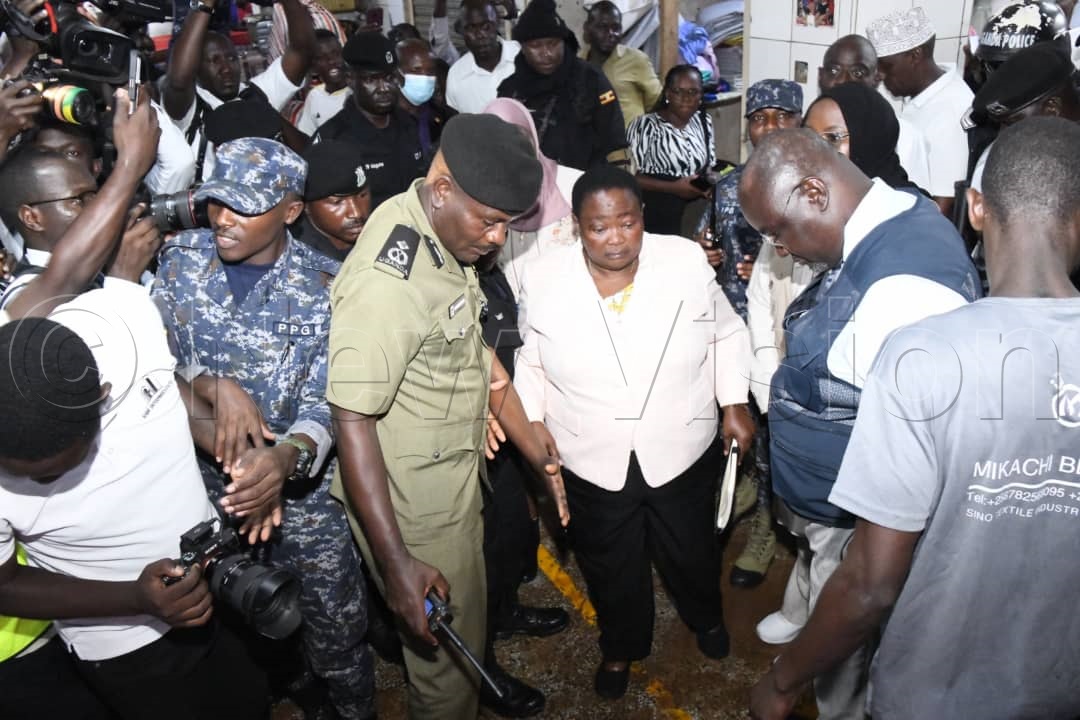Flood-hit Kampala traders clash over shops closure
Security forces were deployed heavily around Pentagon Plaza at Shawuriyako B, Kikuubo Zone to suppress the chaos and maintain order as the situation threatened to spiral out of control.
Traders downtown Kampala. (File/Mpalanyi Ssentongo)
________________
Tensions flared in downtown Kampala city on November 5, 2025, as traders clashed over whether to close their shops in protest or remain open, following devastating floods that swept through the Nakivubo Channel and destroyed dozens of stalls and businesses.
Security forces were deployed heavily around Pentagon Plaza at Shawuriyako B, Kikuubo Zone to suppress the chaos and maintain order as the situation threatened to spiral out of control.
The traders, mobilised by the Kampala City Traders Association (KACITA), had gathered to deliberate on compensation for losses sustained during the Friday, October 31, 2025, floods.
During the short-lived meeting, disagreements erupted between factions of traders, one group demanding a shutdown until the government addresses their plight, and another insisting on continuing business as usual.
Vincent Nyonyintono, the LC1 defence secretary for Shawuriyako B, Kikuubo Zone, said chaos ensued, with some traders even engaging in fistfights over the matter, forcing security to intervene and disperse the crowd.
“The issue on the ground was that some traders supported closing their shops until their concerns were handled, while others were willing to open and work,” Nyonyintono explained.
As tempers flared, security personnel questioned KACITA’s Hajji Issa Sekitto, over allegations that he was mobilising hooligans under the guise of a traders’ meeting.
Sekitto denied the accusations, stressing that the gathering was peaceful and lawful. “This was a peaceful assembly of traders seeking answers about their livelihoods. But if you want me to leave, I will leave if it means restoring calm,” he said as he departed.
The dispute exposed growing divisions within Kampala’s trading community, as rival associations are proposing different approaches to addressing the crisis.
Dr Thadeus Musoke Nagenda, the chairperson of the National Entrepreneurs and Traders Association Uganda (NETA), condemned the unrest and urged calm among business owners.
“It makes no sense to riot when the Prime Minister was in the affected areas and promised that traders would be compensated,” Dr Nagenda said, adding that what would make sense is to continue business as usual as they wait for negotiations to come to fruition.
Council meeting resolutions
On November 3, 2025, the Kampala Capital City Authority (KCCA) convened an emergency special council meeting that passed a 10-point resolution halting the Nakivubo drainage redevelopment project and outlining measures to support affected traders.
Among the resolutions, the Directorate of Gender, Production, and Community Services, led by director Shirah Birungi, was tasked with registering affected traders and assessing their losses.
The Office of the Prime Minister was directed to provide emergency support and compensation, while the Directorate of Physical Planning and Engineering was ordered to produce a comprehensive disaster report with recommendations.
The council further demanded that Ham/Kiham Enterprises (U) Ltd, the developer behind the ongoing Nakivubo Channel works, immediately stop operations pending investigations.
KCCA also resolved to summon the company’s proprietor to explain how construction permits were obtained.
Nabbanja’s Visit
At the height of the crisis, Prime Minister Robinah Nabbanja visited the affected traders on Tuesday at the Sekaziga Building, opposite Hamz Stadium, where she assured them that the government was committed to assisting.
PM Nabbanja during the inspection. (File/Mpalanyi Ssentongo)
“What has brought me here is a directive from the President, who sent me to assess what happened. I want to sympathise with you because I have seen the damage to your merchandise. President Yoweri Museveni has told me that valuers will be sent to assess the losses and determine how the government can assist you,” Nabbanja said.

PM Nabbanja inspecting the areas affected at Nakivubo. (File/Mpalanyi Ssentongo)
The flooding followed months of tension over the Nakivubo Channel redevelopment project. The channel, which originates from Makerere Kivulu and empties into Lake Victoria, cuts through some of the city’s busiest commercial zones.
Initially, a presidential directive authorised the redevelopment and beautification of the channel, led by businessman Dr Hamis Kiggundu through his company, Kiham Enterprises (U) Ltd.
The directive instructed KCCA to provide full support and approvals for the project. However, in subsequent months, investigations revealed unauthorised hoarding, and encroachments were reported along the channel, prompting KCCA to issue a cease-and-desist order against the company.